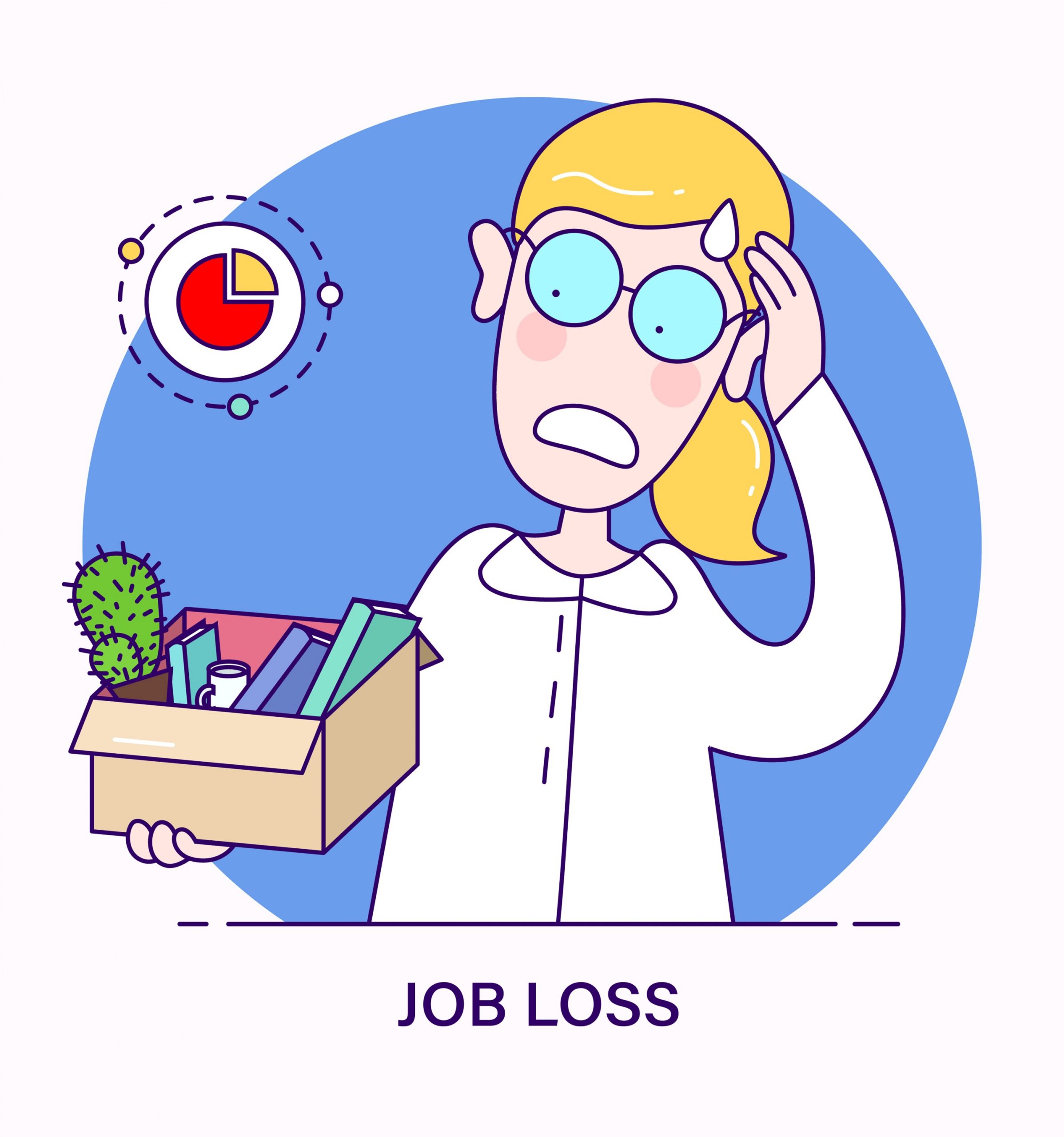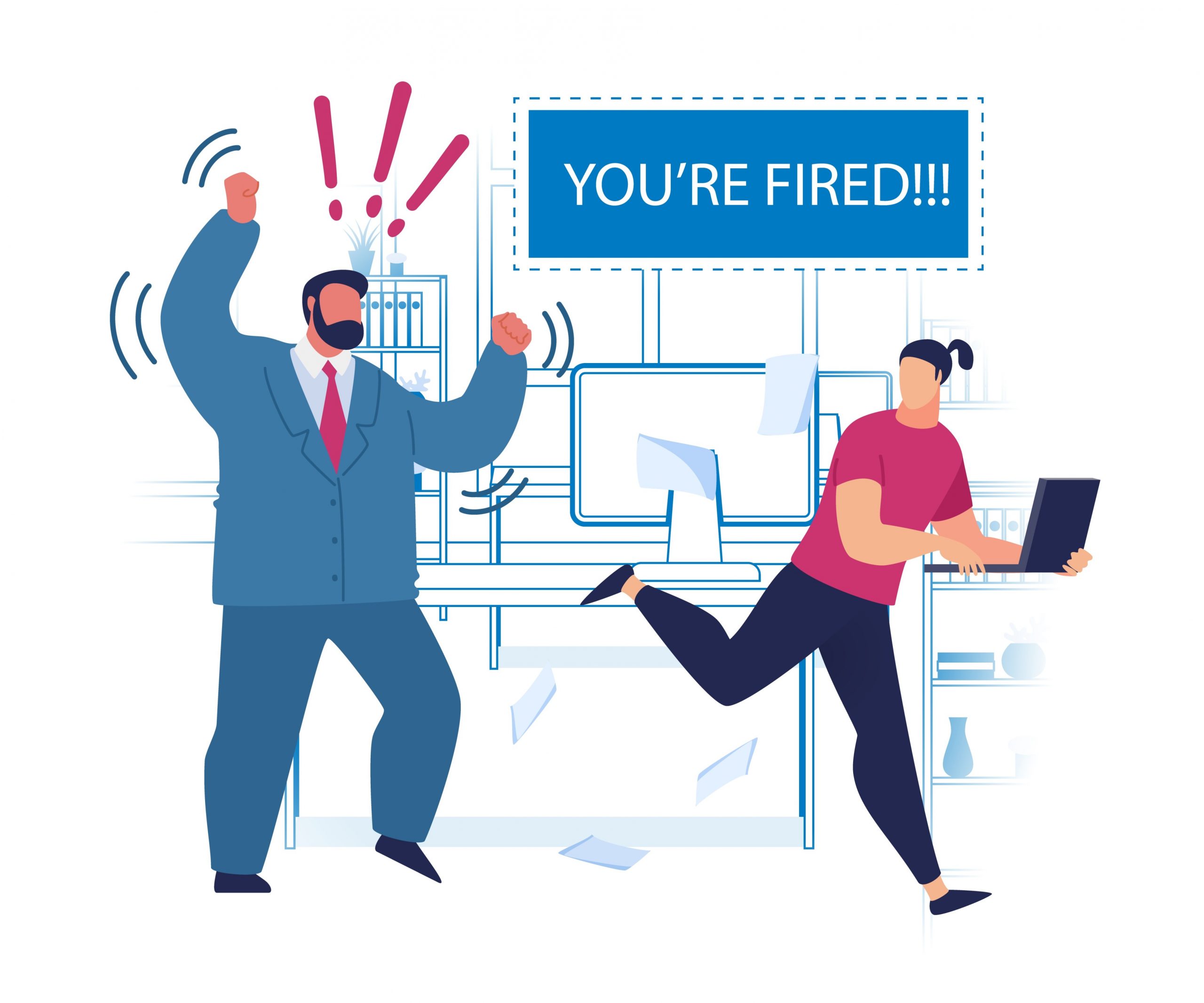Subscribe
Subscribe to EduBridge Blogs
Laid off vs Fired vs Terminated, there are several key distinctions between being fired, dismissed, and laid off, and it’s critical to understand them before deciding what to say to employers.
Why this matters: There are various risks associated with claiming you were laid off when in fact you were fired for poor performance or policy violations.
Furthermore, if you were laid off, you never want to sound like you were fired, therefore it’s critical that you use the proper terminology when explaining what happened to employers.
So, in this post, we’ll look at the differences between getting fired, laid off, and terminated, as well as what to say when you’re fired or laid off in order to get a new job in a shorter period of time

The Difference Between Being Laid Off, Fired, and Terminated:
Being fired means that your employer let you go for reasons that were personal to you. Some businesses may also refer to this as “terminated.” Being laid off is different because it signifies that the corporation eliminated your position for strategic or financial reasons and not due to your fault.
Poor performance, violations of corporate standards, failure to learn the work after being employed, and failure to get along with team members are all common causes for termination. This may also be referred to as terminated. Most times, terminated refers to being fired.
A layoff, on the other hand, typically affects more than one person at a time and is caused by company changes, restructuring, acquisitions, financial struggles, pivots in the business model, economic downturn, and so on.
When you are laid off, the position itself is removed, and no one is looking to replace you. A layoff is not the result of anything you did.

Layoff Example:
Here’s an example of a common layoff scenario to help you grasp the difference between a layoff and being fired:
Company A buys out Company B. Both businesses offer scheduling software for house cleaning and maid services. Company A was interested in Company B because of its technologies and customer base. However, they have their customer support team that can handle all customer service demands.
As a result, Company B’s support staff is likely to be laid off because it was “redundant” following the acquisition.
What to Say If You’re Laid Off
If you were laid off and need to explain it in a job interview (for example, when they question, “why did you leave your previous position?”), the greatest method is to be simple and direct in your response and meet reality squarely in the face.
Layoffs are a normal occurrence in many businesses and are nothing to be ashamed of or embarrassed about discussing.
As a result, you should provide a clear, concise explanation such as “I was laid off” or “The company went through layoffs and my position was abolished.”
Use the word “terminated” sparingly since it frequently indicates that you were fired rather than laid off, which is not what you want employers to believe.

What Should You Say If You’ve Been Fired?
If you were dismissed, you should own your error and explain what efforts you’ve made to prevent it from happening again. However, there are several things you should never mention to your supervisor (for example, “I had difficulties getting along with my boss and we fought frequently”). This will give the impression that you have a persistent attitude problem.
As a result, you must be strategic in what you communicate and how you explain yourself! In general, you want to avoid seeming as if you have a reoccurring attitude problem or a general attitude problem. You also don’t want to sound like there was a pattern of the same mistake/issue occurring several times.
Why? As this will SCARE employers and make them not want to hire you.
Can you claim to have been laid off if you weren’t?
You could potentially tell an employer you were laid off even if you weren’t, but this comes with significant risks and drawbacks. Most companies would consider this dishonest, because the words “fired” and “laid off” indicate completely different things.
If you lie about being laid off, an employer may find your deception during a background check. When your new employer calls, your past employers are unlikely to offer much information, owing to legal concerns. However, they will frequently confirm the following:
- Employment dates
- Job title
- The fact that you worked for the company
- Your main reasons for quitting
- That last bullet point is crucial. They are scared of lawsuits and will never admit, “We fired Frank because he was a poor performance who constantly disagreed with management.”
They may, however, inform your prospective employer that there were no layoffs and that your employment was terminated for other reasons.
This could be enough to cost you the job offer!

Can You Be Fired Because of Poor Performance?
Companies must make difficult decisions during layoffs, and it is probable that they will choose to lay off bad performers first. However, even if this is the case, they will not tell it to you. They will simply inform you that your position has been terminated and/or that you have been laid off.
That means you can’t be fired for poor performance. Or, if you were, you wouldn’t know about it.
Why does this matter? If an employer discussed performance during your final conversation with them, it is likely that you were fired or terminated.
Other indications that you were fired rather than laid off:
- You were the only one who lost your job.
- You had been cautioned about your work performance, attitude, or other specific issues.
- The company is not in any way in trouble, and no layoffs have been mentioned or notified to the employees.
At last, you must be aware of the decision you are making. If you inform an employer that you were laid off because of performance difficulties, you are not being truthful.
Recent Blogs
Related Blogs
Accelerate Your Career with Expert Guidance and Guaranteed Job*!
"*" indicates required fields


